Comparison of Public and Private Finance:
There are numerous similarities, as well as contrast, which become apparent when public and private finances are compared.
Similarities:
(1) Both the individual and the State have broadly the same objective, viz., the satisfaction of human wants. Private finance is concerned with the satisfaction of personal wants, while public finance is concerned with the satisfaction of social or collective wants.
(2) Both the individual and the State have receipts and expenditures and each tries to balance the other and do their best to get the maximum satisfaction.
(3) Both in private and public finance, borrowing becomes essential, when current incomes fall short to meet current expenditures. Moreover, like an individual, the state has also repaid the loans obtained during the deficit.
(4) Both private and public finance always face the problem of adjustment of income and expenditure, and the problem of economic choice as both are concerned with the attainment of unlimited ends with scarce and minimum resources.
Dis-similarities:
Public finance differs fundamentally to that from private finance in matters of motives, methods of finance, and extent of resources, i.e., while the former believes in the welfare of the public and the latter in profit, the former can meet the deficit by imposing new taxes or otherwise, while the latter can not do so. The resources of the former are enormous, while that of the latter are limited. Let us now put forward an analysis of the subject:
(1) Determination of Expenditure- A public authority first determines the volume of expenditure that it has to incur on different heads to perform certain obligations and then tries to find out resources to meet this expenditure while an individual first considers his income and then determines the volume of expenditure, it has to incur on different heads of items of his consumption. It is because of these reasons that a public authority can expand or reduce its income according to its requirements, while such elasticity is not present in the income of an individual. Prof. Dalton expressed it “while an individual adjusts income to expenditure, a public authority adjusts expenditure to income.” But there are certain qualifications to this statement also. Individuals may also seek to increase their income if their obligation and expenses increase. And a public authority as well can not increase its volume of expenditure infinitely, it has to see how much revenue can be exacted without having an adverse effect on the economy of the country. Therefore, sometimes, a public authority has to reduce its expenditure because of the inadequacy of resources.
(2) Compulsory Character- Findlay Shirras pointed out that “another characteristic of public expenditure is its compulsory character.” The State can not avoid or postpone certain expenditures, but this can be done in the case of individuals. The expenditure on defense, public administration, etc., is of compulsory nature. Similarly, the State can compel people to consume a particular variety of cloth, wheat, and other commodities at the prices fixed by it and pay taxes at the rate decided by the public authority, but private individuals and business concerns can not do so. Here it is argued, that an individual is also compelled to incur certain types of expenditure, such as on food, minimum clothing, shelter, etc., and is compelled to take a certain type of design of the cloth. He is guided not by his taste and choice alone, but by the availability of the commodity and the environment of the society also.
(3) Principle of Equi-marginal Utility- To get maximum satisfaction, “an individual so distributes his expenditure on various commodities and services, that the marginal utilities of all these expenditures are equal, and the total utility of the whole expenditure is a maximum.” A similar principle should govern the distribution of public expenditure between different objects. But it is said that an individual is more capable of applying this principle than a government because he is more free to follow his own scale of preferences, while a public authority is not so free, ordinary net advantage governs the expenditure of the citizen. The State is unable to take this as the basis of its expenditure, such as in the case of defence, law and order, education, poor relief, etc. The State is supposed to have no freedom in respect of these expenditures. The State is also forced to spend money on certain items, which it would not otherwise like specially when special interests may be powerful enough to oppose successfully those of the State as a whole, with the result that expenditure, may be increased unnecessarily. Here it is argued that an individual is also not so free as Prof. Shirras has conceived. He is also influenced by external pressure just as the Sate is influenced by external pressure or vested interests, Example, an individual expenditure is affected by the influence of his children, relatives, neighbour and an enemy; especially on occasions of social ceremonies and otherwise. Here, it should be agreed, that the ultimate aim of an individual and the State is the same to spend his income in such a way so as to secure maximum benefit, though there are difficulties for both to achieve their objectives, but of different nature.
(4) Nature of Budget- An individual generally believes in a surplus budget, i.e., in spending less than the income, and a deficit budget (spending more than the income) is considered undesirable, but a public authority may find it useful to have a deficit budget for several years, especially in times of economic development and war. Maintaining a surplus budget for an individual is a virtue since only through savings does one accumulate capital and become rich. But a surplus budget of government means a high level of taxation or a low level of public expenditure, both of which are not liked by the general public. A balanced budget is considered good in normal conditions and not a surplus or deficit budget.
(5) Nature of Resources- The resources of an individual are more or less limited, while that of public authority are enormous. Public authorities can borrow from the general public as well as from foreign countries, but normally it is not possible for an individual. The government can resort to the methods of deficit financing, i.e., the printing of currency notes to increase its income, while an individual can never do so. Public authorities can pass laws to take profitable businesses and trade in their hands for the purpose of raising income, Example, it can nationalize private transport and wholesale private trade. The government can also adopt coercive methods to raise funds from the general public, which an individual can not do so.
(6) Motive of Expenditure- The prima facie motive of a private individual on a business transaction is profit. But, contrary to this, the transaction of public bodies are motivated not by profit but by public welfare, Example, services like public health and medical facilities, education, social security measures, and water supply are not profitable, but these are very essential for the welfare of the citizens and, therefore, provisions of such facilities are made by public bodies.
(7) Long-Term Considerations- Investments of private individuals or companies are found liberal in those fields of business where returns are quick and immediate. Private capital is shy in those fields of business where returns are nominal and that too are possible after a very long period. But the government is never influenced by these considerations. Therefore, it undertakes such projects also, if they are in the interest of public welfare, for example, the construction of multipurpose hydroelectric projects. Hence, many expenditures for public purposes are made for the future as much as for the present, i.e., future is as important as the present and the state can afford them in a way in which the individual can not.
(8) Coercive Methods- A public authority can use coercive methods to realize its revenue. Suppose a person does not pay Income-tax for which he is liable to pay, he can be prosecuted in a court of law or he can be penalized financially by increasing the burden of the tax. And, therefore, no individual can refuse to pay taxes, if he is liable to pay them. While private individuals and businessmen can not use force to get their income in the manner in which the government does. Hence, the income of the public authorities is much more assumed than that of private individuals and businessmen.
(9) Publicity and Audit- Lastly, a private individual likes to keep his financial transaction secret, while the government gives the greatest publicity to its budget proposals and allocation of resources to different heads in Five Year Plan Documents. Again, accounts of public bodies are subject to audit and inspection, while it is always not necessary for private individuals.
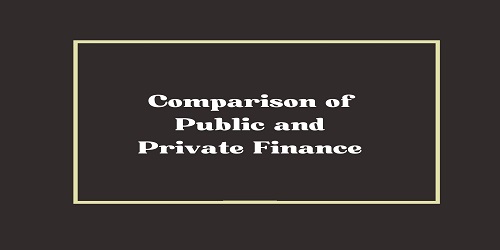
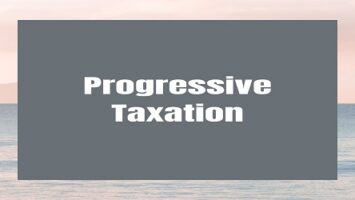
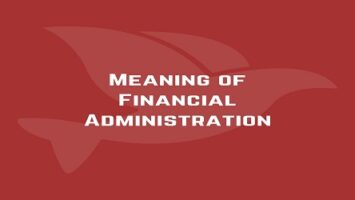

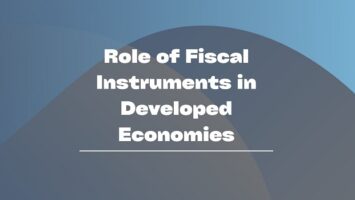
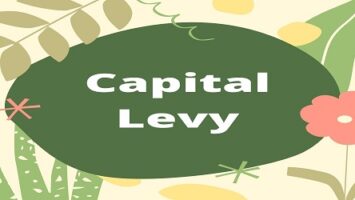

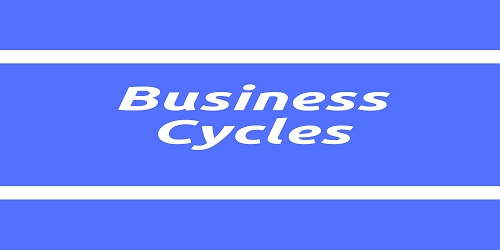

Comments (No)